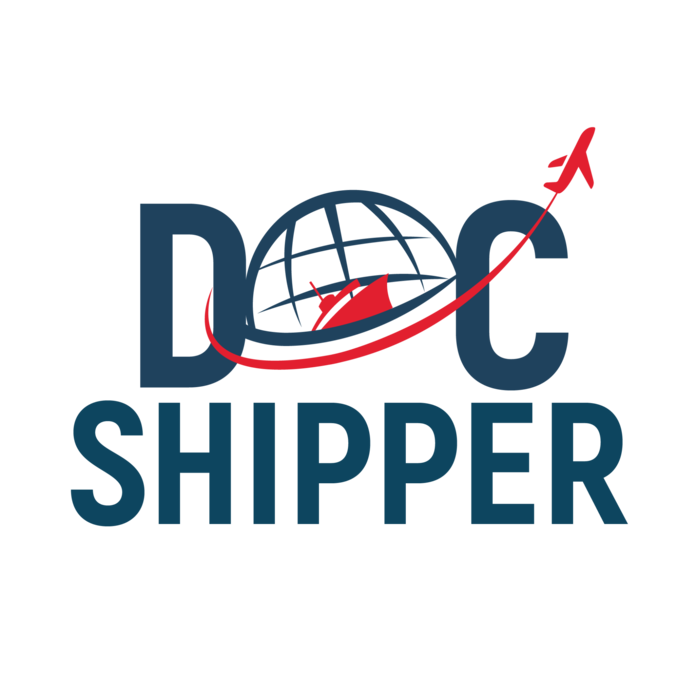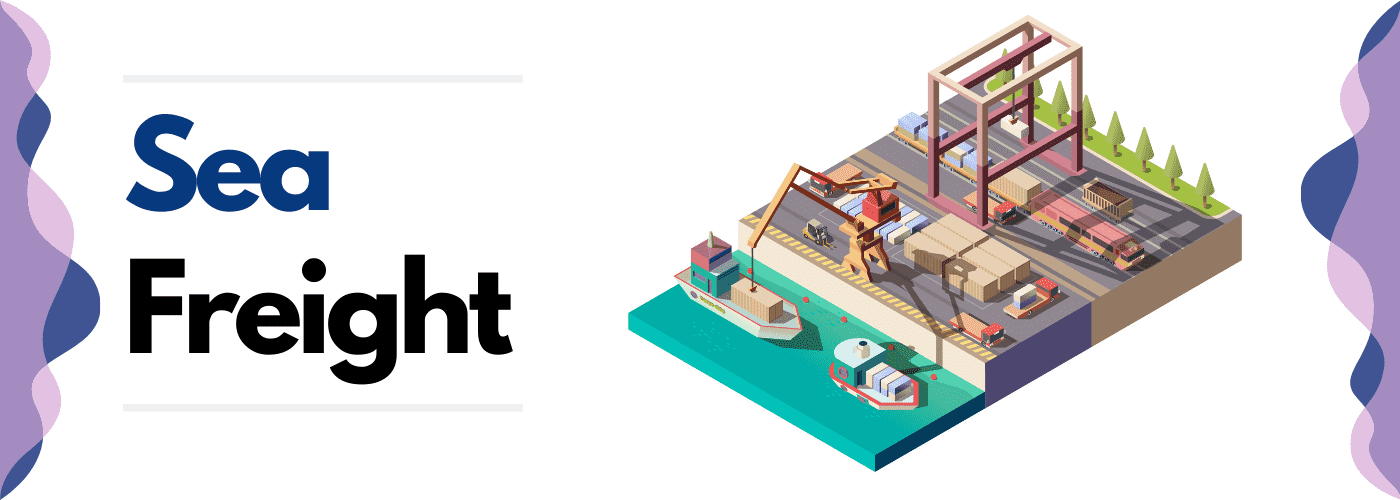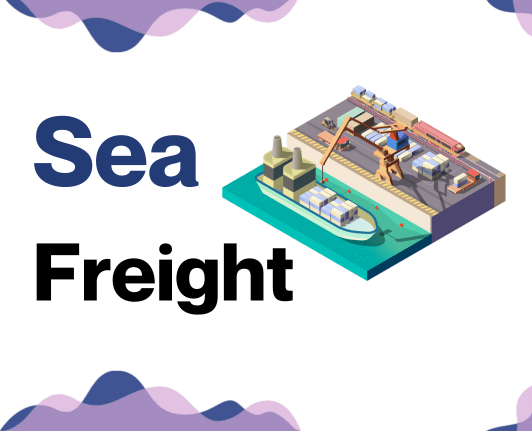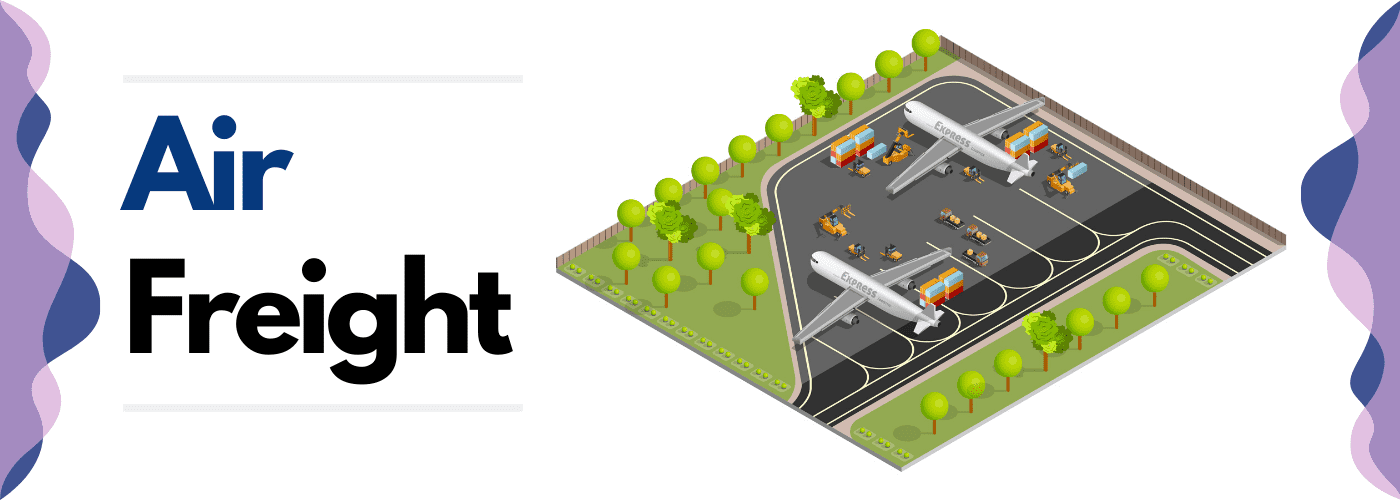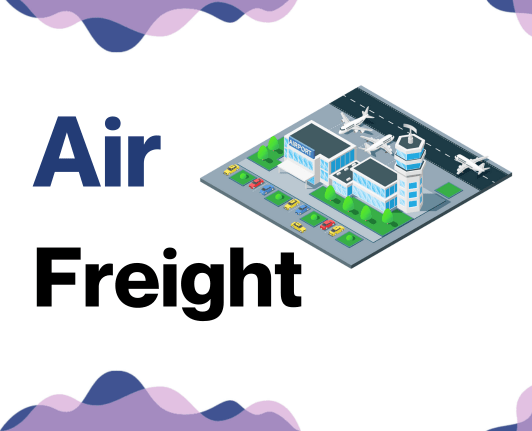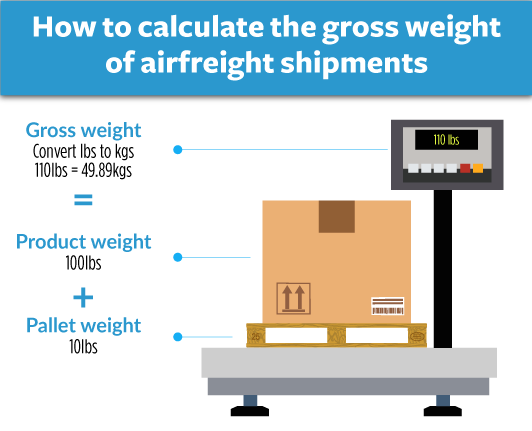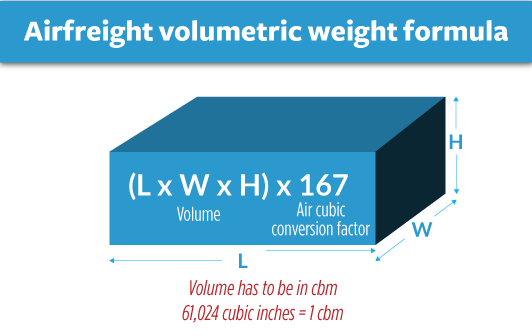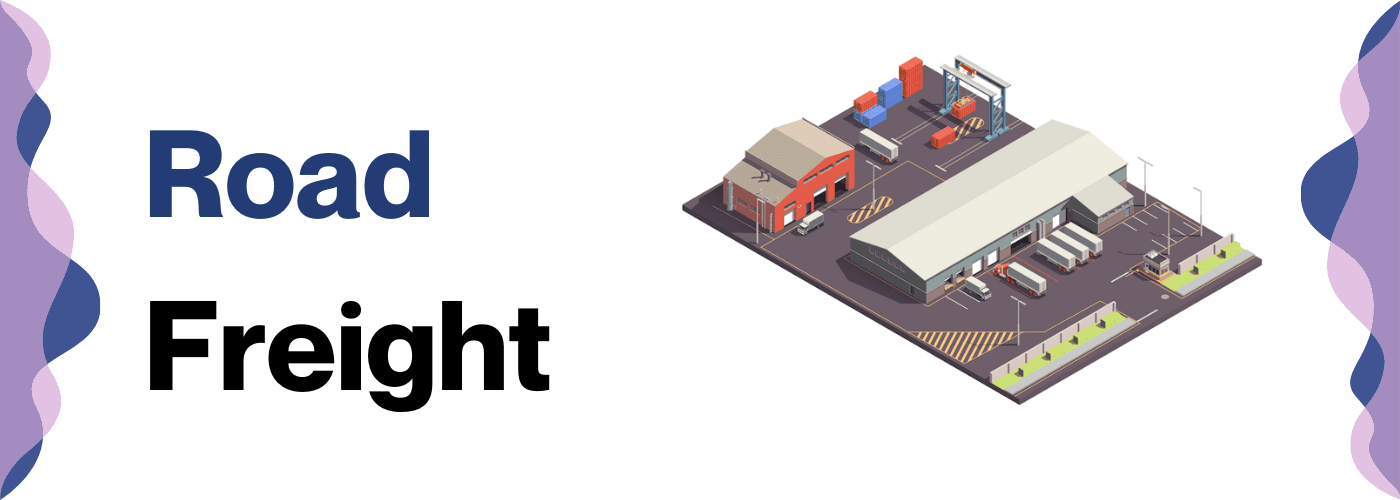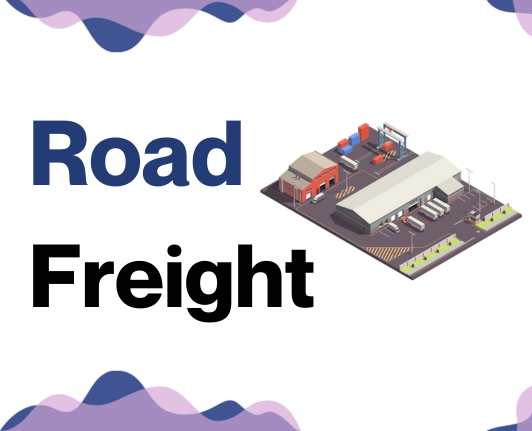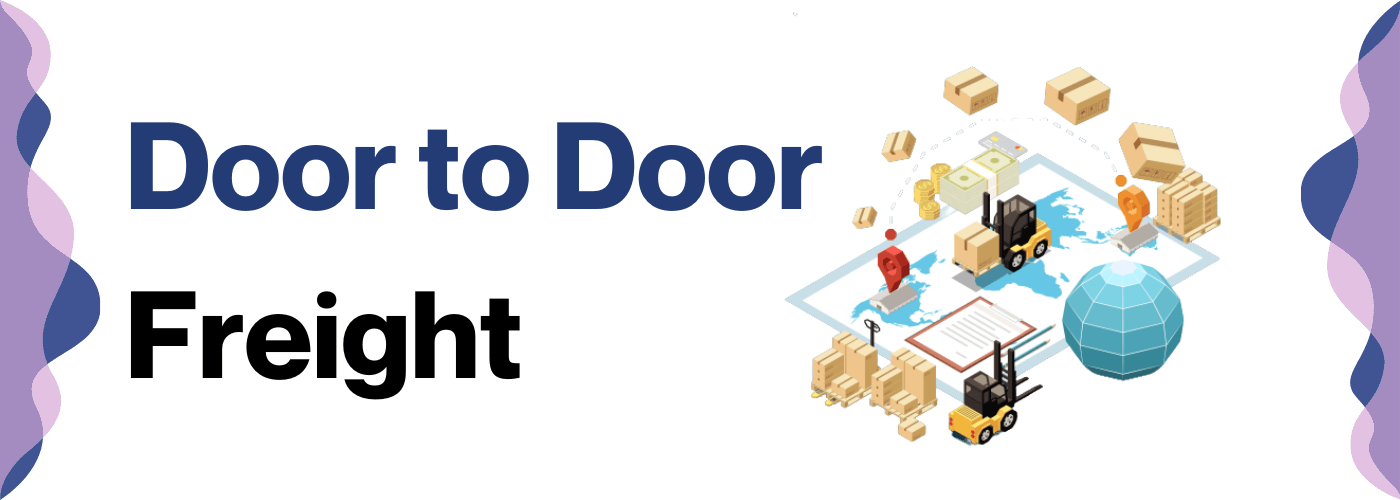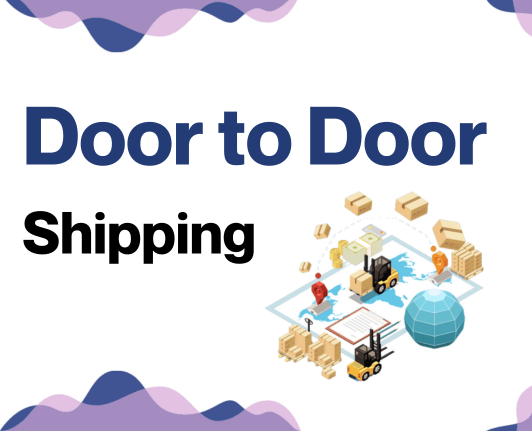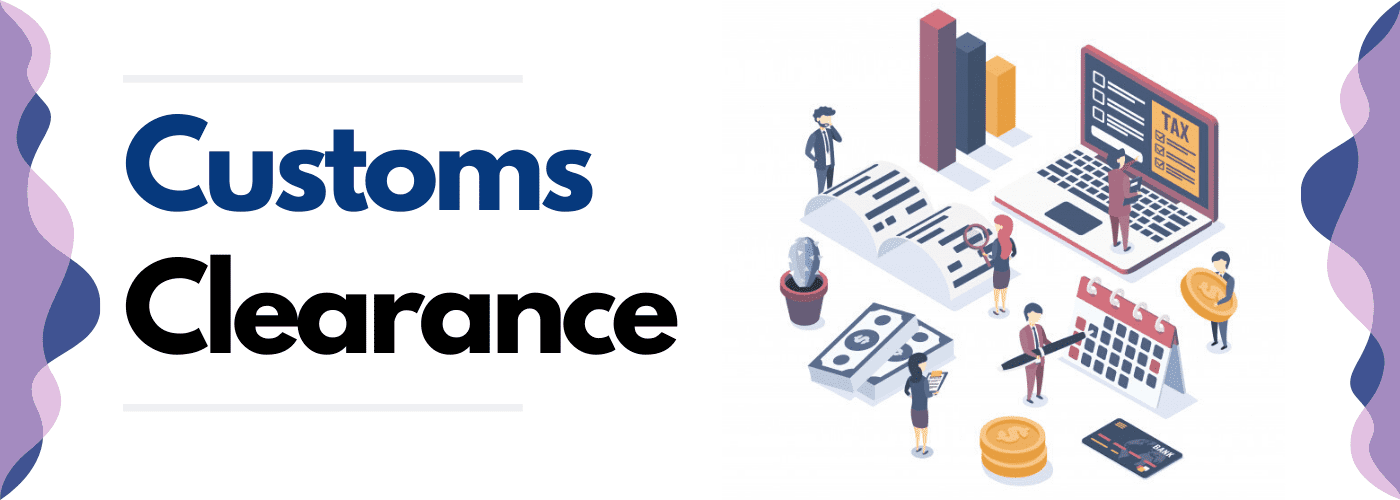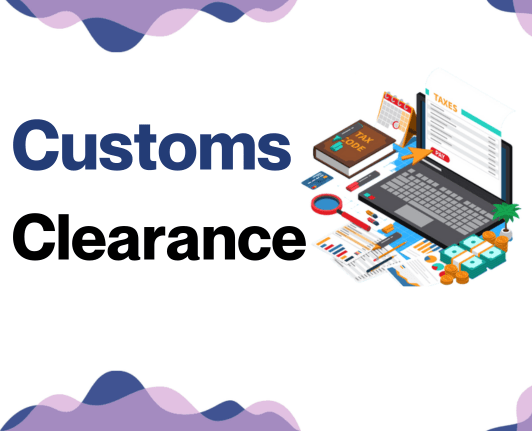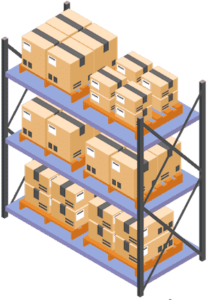Have you heard the one about the UK business whose shipment took a slo-venly route to Slovenia? That's no joke when dealing with understanding rates, transit times, and complex customs regulations!
This guide has been meticulously crafted to help clarify these potentially daunting aspects of international freight. Whether it’s choosing between air or sea freight, understanding the labyrinthine world of customs clearance, calculating duties and taxes, or just seeking expert advice tailored precisely for your business, this guide has it covered.
If the process still feels overwhelming, let DocShipper handle it for you! With trusted expertise in international freight forwarding and a commitment to turning challenges into success, DocShipper makes your shipping process between the UK and Slovenia a breeze. Dive in now to start unravelling the mysteries of shipping between these two vibrant nations.
Table of Contents
Which are the different modes of transportation between UK and Slovenia?
Imagine plotting a journey from the UK to Slovenia: landlocked countries, neighbouring nations, and the seas rise as potential stops. However, businesses need speed, efficiency, and value.
Enter, the two champions of transport—air and road. Air freight, the speed king, turns hours into days. Road freight, our value champion, uses the European highway network as a cost-efficient route. Your choice hinges on business needs: time-sensitive or cost-conscious?
Each decision shapes your trade expedition between these nations. The right method stitches together time, cost, and ease, like a tapestry of successful international trade.
How can DocShipper help?
Struggling with shipping goods from the UK to Slovenia? Remember, complex routes don't mean the journey has to be difficult. With DocShipper's expertise in international transport and customs procedures, we ensure a smooth expedition. Want to shed the shipping stress? Contact us now for a free estimate in 24 hours or speak with our consultants for free. We're here to make shipping simple.
DocShipper Tip: Ocean freight might be the best solution for you if:
- You're dealing with large quantities or oversized items. Sea freight offers a budget-friendly way to maximize space, a particularly useful option given the UK's extensive port network.
- Your shipment isn't on a tight schedule. Ocean transport typically takes longer than air or rail, but it offers reliability.
- Your supply chain involves key ports, allowing you to take advantage of a wide-reaching network of sea lanes.
Sea freight between UK and Slovenia
Ocean shipping between the UK and Slovenia is a nexus of commerce, linking British industry to the beating heart of Central Europe. From Southampton's bustling ports to Koper's deep-water docks, voluminous goods seamlessly traverse the sea waves.
In fact, sea freight forms a cost-effective channel for transporting high-volume goods. But don't be swayed by the relaxed pace; its strength is in its ability to handle intense load.
However, it's not all smooth sailing. Businesses frequently grapple with the complexities of shipping between these two climes. It's akin to navigating a labyrinth; only here, missteps can result in lost time, increased costs, and frustrated customers.
That's where our trusted guide tends to shine like a lighthouse, illuminating various best practices and specifications that can streamline your shipping process. It’s like having a seasoned sailor by your side, steering through rough trade waters with the finesse of experience.
Stay tuned, and get ready to gain some sea legs for your business.
Main shipping ports in UK
Port of Felixstowe
Location and Volume: The Port of Felixstowe is nestled in Suffolk, England. It's the busiest container port in the country, handling approximately 4 million TEUs in 2022.
Key Trading Partners and Strategic Importance: Top trading nations include China, US, and countries from the European Union. As a pivotal hub for UK's trade, it also connects with 700 other ports worldwide.
Context for Businesses: If you plan to tap into UK markets, the Port of Felixstowe, with its robust capabilities and wide-reaching connections, could prove crucial for your shipping strategy.
Port of Southampton
Location and Volume: This port is situated in South England and specializes more in cruise traffic. However, it also processed around 3.8 million TEUs in 2022, making it the second busiest in the UK.
Key Trading Partners and Strategic Importance: The port's primary trading partners are North America, the Far East, and Europe. It’s also home to a state-of-the-art cruise terminal and is known for its fast cargo turnaround.
Context for Businesses: When thinking about market expansion, the Port of Southampton’s diverse infrastructure and broad trading network might play a vital role in your logistics.
Port of London
Location and Volume: Located by England’s capital city, this port handled around 1.5 million TEUs in 2022, serving multiple segments from containers to bulk commodities.
Key Trading Partners and Strategic Importance: Major trading partners are the EU, Americas, and Asia. The port’s strategic location provides easy access to the UK’s southeast markets.
Context for Businesses: If reaching the densely populated regions of southeast UK is vital for your business, then the Port of London, with its versatile cargo handling options, could be essential.
Port of Liverpool
Location and Volume: Based in Northwest England, the Port of Liverpool handled over 7.430 million tonnes of cargo in 2023.
Key Trading Partners and Strategic Importance: It's a primary gateway for trade with Ireland, North America, and the Mediterranean region. It’s also a vital hub for Ro-Ro ferries and container traffic.
Context for Businesses: If your business seeks to establish effective trade routes with North America or the EU, the Port of Liverpool's specialized infrastructure might be crucial to your strategy.
Grimsby & Immingham Port
Location and Volume: These sister ports are based in North East Lincolnshire and are the UK's largest port by tonnage, handling over 14.8 million metric tonnes in 2022.
Key Trading Partners and Strategic Importance: The bulk of their trade comes from countries within the EU, and they’re major centers for the energy sector.
Context for Businesses: Your strategy might benefit from the extensive capabilities of Grimsby & Immingham if you're targeting energy markets or require sizeable cargo movements.
Port of Dover
Location and Volume: The Port of Dover, located in South East England, is the busiest passenger port in the world and also handles about 2.5 million tonnes of freight trade yearly.
Key Trading Partners and Strategic Importance: The major trading partners are the EU countries, especially France. The port plays a significant role in roll-on/roll-off ferry traffic.
Context for Businesses: For businesses which involve significant passenger or Ro-Ro ferry movements, the Port of Dover, with its passenger handling capabilities, can be influential in your shipping strategy.
Main shipping ports in Slovenia
Port of Koper
Location and Volume: Positioned on the northeastern shores of the Adriatic Sea, the Port of Koper is Slovenia's gateway to international trade, with an annual shipping volume of around 988,000 TEUs Twenty-foot Equivalent Units.
Key Trading Partners and Strategic Importance: Being Slovenia's major port, it forms a crucial connection to key trading partners like Italy, Germany, Hungary, and Austria. Its strategic location makes it a vital link between the Mediterranean, the Middle East and Asia, and central and Eastern Europe.
Context for Businesses: If your business is looking to tap into central and Eastern European markets or extend reach into Asia, the Port of Koper offers fantastic opportunities. Its comprehensive logistical solutions, including rail and road connections, make it a viable option for integrating into your shipping strategy.
Should I choose FCL or LCL when shipping between UK and Slovenia?
Deciding on the best sea freight option - Full Container Load (FCL) or Less than Container Load (LCL), also known as consolidation - is essential for your success in transporting goods from the UK to Slovenia.
Your choice directly influences the costs, delivery timelines, and overall shipping experience. Get ready to delve into the distinctions between FCL and LCL, gaining the knowledge needed to make an astute decision for your specific shipping needs.
Our guide aims to illuminate these paths, helping optimize your freight strategy. Let's set sail on this essential leg of your shipping journey!
LCL: Less than Container Load
Definition: Less than Container Load (LCL) shipping, also known as groupage shipping, allows multiple shippers to share container space. It is perfect for smaller, less bulky goods that don't require the entire capacity of a container.
When to Use: LCL shipment is the optimal choice when your cargo volume is less than about 13 to 15 cubic meters (CBM). This option offers flexibility in terms of shipment size and is more cost-effective for lower volume shipments.
Example: Let's say, a furniture manufacturer in London needs to transport an order of 10 CBM worth of tables to a retailer in Ljubljana. Instead of paying for a full container, they can use LCL shipping to share the space with others, thus reducing costs.
Cost Implications: While LCL freight rates are typically higher on a per CBM basis compared to Full Container Load (FCL), it often turns out to be cheaper for smaller shipments since you only pay for the space your products occupy. It's also worth noting that, due to shared space, LCL may come with some additional handling costs and take slightly longer to deliver.
FCL: Full Container Load
Definition: FCL (Full Container Load) shipping is a method where the entire container is dedicated to a single consignee. This mode provides heightened safety as the container remains sealed from origin to destination.
When to Use: If your cargo volume exceeds 13-15 CBM (cubic meters), choosing FCL can be a cost-efficient and safe option. Your shipment will not share container space with other shippers, reducing risks associated with mixed shipments.
Example: Suppose your company needs to ship 18 CBM of furniture from London to Ljubljana. Opting for FCL shipping preserves the integrity of your shipment, as your goods occupy a 20'ft or 40'ft container alone, and remains sealed throughout transit.
Cost Implications: Though FCL requires higher initial outlay as you're renting an entire container, it could result in lower costs per unit with larger volumes. The FCL shipping quote will primarily depend on the container size chosen: 20'ft container for smaller shipments and a 40'ft container for larger ones. Remember, consolidated transportation and reduced risk mean potential savings in the long run.
Unlock hassle-free shipping
Navigate the complexities of international freight with DocShipper, your hassle-free cargo shipping partner. Our seasoned ocean freight experts help you unravel the best between consolidation and full containers, taking into account your cost concerns, shipment size, and delivery speed. Don't stress over your UK to Slovenia freight decisions. Tap into our expertise and choose your ideal shipping mode. Ready to embark on a seamless shipping journey? Contact us now for a free, no-obligation estimate!
How long does sea freight take between UK and Slovenia?
Sea freight between the UK and Slovenia usually takes anywhere from 10 to 25 days. However, it's important to understand that the exact transit time can vary due to several factors, such as the specific ports of origin and destination, the weight of the goods, and their nature and content.
For an accurate estimate of shipping times for your specific needs, it would be best to contact a trusted freight forwarder like DocShipper for a personalised quote.
Here is a quick glance at the average sea freight transit times from the main UK ports to Slovenian ports:
| UK Port | Slovenian Port | Average Transit Time (Days) |
| Southampton | Koper | 17 |
| Liverpool | Koper | 14 |
| Felixstowe | Koper | 9 |
| London Gateway | Koper | 10 |
*Kindly note these are approximate transit times and can significantly vary based on many shipment details.
How much does it cost to ship a container between UK and Slovenia?
Uncovering the cost of shipping a container from the UK to Slovenia isn't straightforward. The complexity arises from varying variables, including Point of Loading, Point of Destination, the carrier enlisted, the nature of the goods in question, and the whims of the monthly market.
Despite this unpredictability, general ocean freight rates may range expansively. Although we can't offer an ironclad figure here, our savvy shipping specialists are on hand to deliver the best rates for your unique circumstances, quoting on a case-by-case basis.
Remember, costs are more than just a number. They're a function of tailored solutions addressing your specific shipping needs.
Special transportation services
Out of Gauge (OOG) Container
Definition: These refer to out of gauge cargo, anything that exceeds standard container dimensions - width, length, or height. Essentially, OOG containers are for your exceptionally large and oddly shaped items.
Suitable for: Shipping large machinery, industrial equipment, construction materials, or any oversized item that doesn't fit into standard containers.
Examples: Wind turbines, Excavator parts, Oversized pallets.
Why it might be the best choice for you: If your cargo exceeds standard dimensions, choosing OOG container would be your best bet. It minimizes the risk of damage and assures the safe delivery of goods from the UK to Slovenia, as these containers cater specifically to unconventional, larger loads.
Break Bulk
Definition: This relates to break bulk shipping which involves individually loading items onto the vessel, instead of in containers. Each individual item becomes its own load.
Suitable for: Project cargo, very heavy machinery, and goods that are too large for standard containers but can be handled individually.
Examples: Large construction equipment, power plants, landmarks.
Why it might be the best choice for you: If the safety of individually handled cargo is your prime concern or you deal with very heavy machinery, then the break bulk method promises detailed personal attention to each piece.
Dry Bulk
Definition: This method refers to dry bulk shipping where goods are loaded and shipped in large amounts, without any packaging, usually poured directly into the vessel's hold.
Suitable for: Loose cargo load such as grains, coal, cement, metals, and minerals.
Examples: Wheat, Iron Ore, Sand.
Why it might be the best choice for you: If your business deals in loose cargo—items that are neither packaged nor containerized—dry bulk shipping can be a truly cost-effective and efficient solution from the UK to Slovenia.
Roll-on/Roll-off (Ro-Ro)
Definition: This makes reference to ro-ro vessels specifically designed to carry wheeled cargo such as cars, trucks, semi-trailer trucks, trailers, and railroad cars that are driven on and off the ship on their own wheels or using a platform vehicle.
Suitable for: Any form of wheeled cargo.
Examples: Cars, Trucks, Buses, Heavy-duty construction vehicles.
Why it might be the best choice for you: If your business involves automotive import/export between the UK to Slovenia, ro-ro offers a streamlined and efficient solution; it’s like a floating parking lot, allowing easy loading and unloading of vehicles.
Reefer Containers
Definition: This refers to refrigerated containers, temperature-controlled containers that regulate the temperature inside, suitable for shipping perishable goods.
Suitable for: Perishables, temperature-sensitive pharmaceuticals, and other goods that require constant temperature.
Examples: Fruits, Fish, Meats, Medicines.
Why it might be the best choice for you: If the nature of your goods demand cold conditions, reefer containers ensure that these products retain their market value from the UK to Slovenia without losing their freshness or efficacy.
In conclusion, irrespective of your shipping needs, DocShipper can help you explore the most suitable option for your specific cargo. We offer timely and competitive estimates. Contact us today for a free shipping quote in less than 24 hours, and start your efficient shipping journey with us.
DocShipper Tip: Air freight might be the best solution for you if:
- You're facing tight deadlines or need rapid delivery. Air freight is your quickest option, which aligns well with the fast-paced business environment.
- Your shipment is relatively small, under 2 CBM. Air freight is ideal for these more compact loads.
- Your cargo's destination isn't easily reached via sea or rail. This makes air freight a viable option, especially given the extensive network of airports available.
Air freight between UK and Slovenia
Speed, precision, and high-value relatively small items are the beating heart of air freight between the UK and Slovenia. Imagine shipping an exclusive line of British wristwatches or a batch of life-saving medicines; air freight thrives here. That's because it's not only fast and reliable but also treats your wallet kindly when you're shipping less bulky, more valuable items.
However, many shippers hit bumps on the road by not planning effectively. Picture planning a vacation, but forgetting to budget for meals or interesting excursions; the same happens with air freight. Common errors include misjudging the cost based on incorrect weight calculations or inadequately evaluating best practices. And just like a half-planned trip can lead to unnecessary expenses, so can these missteps in air freight.
Air Cargo vs Express Air Freight: How should I ship?
If you're sending goods between the UK and Slovenia, you’re likely grappling over Air Cargo or Express Air Freight. Picture Air Cargo as hitchhiking in a commercial plane's luggage hold, while Express Air Freight - that's a VIP seat in a dedicated plane for your goods.
We're here to break down the nuts and bolts of both options and guide you through the best one for your business. Get ready to master your freight forwarding game!
Should I choose Air Cargo between UK and Slovenia?
If your shipment to Slovenia from the UK weighs over 100/150 kg (220/330 lbs), air cargo becomes increasingly attractive. It's reliable and cost-effective, using prominent airlines like British Airways or Adria Airways. Despite longer transit times due to fixed schedules, this option may well align with your budgetary needs. Remember, right decisions in freight forwarding can lead to significant cost reductions. Think about your business' unique demands and weigh the benefits.
Should I choose Express Air Freight between UK and Slovenia?
Opting for Express Air Freight, a service dedicated to moving cargo swiftly via dedicated cargo planes, could expedite your small shipments between the UK and Slovenia. Renowned international express courier firms FedEx, UPS, and DHL specialize in this service. Ideal for packages under 1 CBM or 100/150 kg (220/330 lbs), it provides prompt delivery and detailed tracking. If time is your priority, and your cargo fits within these parameters, express air freight might be the best choice.
Main international airports in UK
Heathrow Airport
Cargo Volume: Heathrow handles over 1.2 million metric tonnes of cargo annually.
Key Trading Partners: Major partners include the US, China, and the EU.
Strategic Importance: Heathrow's central location in Europe and proximity to London make it a key global freight hub.
Notable Features: With dedicated cargo terminals and airlines, Heathrow can accommodate all types of freight, including perishable goods and pharmaceuticals.
For Your Business: Its extensive global network and comprehensive freight services make it an ideal choice for businesses targeting European and other international markets.
East Midlands Airport
Cargo Volume: The airport handles more than 360,000 tonnes of cargo annually.
Key Trading Partners: Its primary partners are in Europe and North America.
Strategic Importance: As the main pure air freight hub in the UK, it contributes significantly to the national economy.
Notable Features: The airport has dedicated cargo facilities, including a specialized express air cargo terminal.
For Your Business: If you're shipping time-sensitive goods like e-commerce packages, using East Midlands Airport could lead to faster delivery times.
Cargo Volume: Stansted handles over 250,000 tonnes of cargo annually.
Key Trading Partners: Key countries include the United States, Chinese Mainland, and Hong Kong.
Strategic Importance: Positioned conveniently in the London Cambridge corridor, its location is key to import and export activities.
Notable Features: It has a state-of-the-art cargo terminal and on-site screening facilities.
For Your Business: If your business focuses on East Asian markets, Stansted's strong ties and facilities might pave the way for successful operations.
Manchester Airport
Cargo Volume: Manchester handles more than 120,000 tonnes of cargo annually.
Key Trading Partners: The United States and European Union are its major partners.
Strategic Importance: It is the third largest airport in the UK and provides an essential connection with the Northern UK markets.
Notable Features: The airport is equipped to handle a variety of cargo, from small packages to oversized freight.
For Your Business: With strong connectivity within the UK, Manchester Airport may support your distribution strategy, particularly if your business has a significant presence in the North.
Glasgow Prestwick Airport
Cargo Volume: Prestwick handled over 13 thousand metric tonnes of cargo in 2023.
Key Trading Partners: It primarily serves European countries like Ireland, Estonia, and Malta.
Strategic Importance: Prestwick is a designated airport for emergency diversions and an essential freight hub in Scotland.
Notable Features: The airport facilitates the transportation of large and oversized cargo.
For Your Business: If you need to ship large objects or need emergency cargo services, consider using Glasgow Prestwick Airport.
Main international airports in Slovenia
Maribor Edvard Rusjan Airport
Cargo Volume: Approximately 700 tonnes annually.
Key Trading Partners: Predominantly other European Union countries, mainly Germany, Italy, and Austria.
Strategic Importance: Maribor Airport, being the second largest in Slovenia, plays a crucial role in handling EU trade due to its location near the intersection of two Pan-European corridors.
Notable Features: It offers 24/7 operations and customs services, along with a competitive warehousing facility.
For Your Business: Looking for a cost-effective, secure, and hassle-free air cargo logistics solution in the heart of Europe? Maribor Airport might be the optimum choice to streamline your logistics with flexible scheduling, storage capacity, and central location.
Portorož Airport
Cargo Volume: handled more than 11 tonnes of freight and mail in the past, with warehouse space to handle up to 15-20 tonnes of cargo.
Key Trading Partners: Services mainly regional locations within EU.
Strategic Importance: The smallest and least busy among Slovenia's airports, Portorož, hold significance due to its access to the Slovenia's Adriatic Sea coast.
Notable Features: Although primarily serving tourism and private aviation, Portorož can handle small cargo operations, offers customs services, and is known for speedy procedures.
For Your Business: If your operation is small-scale and you're aiming to penetrate the local Slovenian market, shipping through Portorož can ensure quicker clearance and faster distribution in the coastal region.
Please note that while these airports do provide cargo services, their volume is considerably smaller than the global giants. Their strategic value lies in their geographic locations and prompt clearance procedures. Slovenia's primary gateway for the majority of high volume import and export remains its seaports, particularly the Port of Koper. Always tailor your shipping strategy to the nature of your goods, budget and market focus.
How long does air freight take between UK and Slovenia?
Shipping goods between the UK and Slovenia by air freight typically takes between 1-3 days. However, the exact transit time may fluctuate depending on the specific airports involved, the weight of the shipment, and the nature of the goods being transported. For accurate, tailored transit times, it's advised to consult with a freight forwarder like DocShipper.
How much does it cost to ship a parcel between UK and Slovenia with air freight?
Many factors influence the cost of shipping an air freight parcel from the UK to Slovenia. On average, expect a rough range between £3 - £7 per kg, but keep in mind this is a very wide estimate.
Costs can fluctuate because of the distance from departure and arrival airports, parcel dimensions, weight, and type of goods shipped. Since every order is unique, our expert team takes a personalized approach to providing you the best available rates.
We carefully calculate quotes on a case-by-case basis. Ready to get started with your air freight? Contact us to receive a free quote in under 24 hours.
What is the difference between volumetric and gross weight?
In shipping, your cargo's gross weight is its actual physical weight measured in kilograms, while volumetric weight, sometimes called dimensional weight, factors in how much space your cargo takes up.
For air cargo, the volumetric weight is calculated by multiplying the length, width, and height (in cm) of your package, and then dividing the result by 6000. For Express Air Freight, the divisor is 5000, making volumetric weight slightly higher.
Let's illustrate this with an example. Suppose you're shipping a box with the dimensions 40cm x 30cm x 30cm that weighs 10kg. For air cargo, the volumetric weight is (40cm x 30cm x 30cm) / 6000, which equals 6kg (or roughly 13lbs). For Express Air Freight, the volumetric weight changes to (40cm x 30cm x 30cm) / 5000, around 7.2kg (or nearly 16lbs).
Why is this important? Freight charges are determined by comparing the gross and volumetric weight, then charging based on the higher figure. Knowing how both are calculated can help you choose the most cost-effective way to ship your goods.
DocShipper tip: Road freight might be the best solution for you if:
- You're seeking a budget-friendly solution for shorter hauls. Road freight often comes out on top in terms of cost-effectiveness and speed for these kinds of distances.
- Your end destination is either within your own continent or just across the border. For such regional or intra-continental shipments, road freight is typically the most direct and rapid method.
- Your cargo has unique dimensions or shapes. The adaptability of trucking allows for a wide range of goods that may not conform to the size limitations of sea or air transport.
Trucking between UK and Slovenia
Whether you're transporting a tiny package or a colossal consignment, trucking services between the UK and Slovenia are a top-notch choice. One that balances speed, cost efficiency, and flexibility. The well-connected European highways serve as a swift transit route, despite varying road conditions.
While sea and air freight offer their own merits, trucks often trump in terms of cost, especially for the short haulage. It's essential though to weigh the trade-off between speed, cost, and the sensitivity of your goods. But done right, road freight can propel your business forward, and fast. So, shall we delve deeper into these roads less travelled?
What if I can’t fill a truck between UK and Slovenia?
Knowing the right freight option between the UK and Slovenia can truly revolutionize your business operations! This next section demystifies LTL and FTL shipping, making it easier for you to pick a solution tailored for your logistical needs. Let's help you balance cost-effectiveness with efficiency. Stay tuned!
LTL: Less than Truck Load
Diving right into Less than Truck Load (LTL) freight – it's a transport option where multiple shipments from various shippers are combined into a single truckload. But the real advantage lies in its flexibility; it's like carpooling for cargo. If your cargo is only 13, 14, or 15 CBM, you'll only pay for that space, saving you costs on sending an half-empty truck.
For example, if you're in the furniture business and regularly ship 10 CBM of chairs from the UK to Slovenia, it's more cost-efficient to go for LTL.
When does LTL shine? Here are some potential use cases:
- You're running a small business and don't require a full truckload for your goods.
- Shipping out seasonal products? Instead of waiting for enough stock, send out small batches regularly.
- If managing shipping costs is a priority, sharing a truck certainly eases the burden.
- When your goods are non-perishable and can withstand the slightly longer transit time.
Whether you’re considering LTL freight for the first time or transitioning from FTL, it's about addressing your specific shipping needs efficiently. It’s possible that an LTL shipment is just what you need for your UK-Slovenia freight requirements. No excess space, no unnecessary cost.
FTL: Full Truck Load
Full Truck Load (FTL) freight is essentially a shipping option where your cargo occupies the whole truck's capacity, from door to door. Picture your shipment as a puzzle fitting perfectly into a truck's available space, that's essentially an FTL freight.
In the context of shipping between UK and Slovenia, FTL becomes your go-to when your cargo volume surpasses 13 to 15 CBM. Why? Because here, your shipment gets exclusive access to the entire truck, preventing frequent stops for loading/unloading other consignments. This means your FTL shipment generally leads to quicker, safer, and more predictable deliveries.
Imagine you’re exporting beverages in bulk where each pallet is 2 CBM. If you have around 10 pallets, that's 20 CBM, taking up a significant space in the truck, making FTL your best bet.
Considering FTL freight, here's a snapshot to help you decide:
- When your goods occupy 13-15 CBM or more.
- For high-value items needing extra security.
- Urgent shipments with tight timelines.
- Cargo that is not easy to divide into smaller units.
- When a direct, non-stop route to delivery is required.
Each shipment is unique, consider your own needs and consult your freight forwarder for the best-fit solution.
What are the main routes between UK and Slovenia?
Like fingers on a hand, bustling trade routes spread across the European terrain, linking the UK with Slovenia. The prevalent route shimmies through the heart of pivotal cities like Calais, Frankfurt, and Vienna.
Starting from London, convoy often commences via the A20, seamlessly merging onto M20 towards Channel Tunnel. Once across, the trucks course through A16 and A26 highways in France, ingeniously interlocked with A3 and A5 in Germany, spiralling towards A1 in Austria, finally skirting into Slovenia via A2.
However, seasonal weather such as winter snowstorms around the Alps, local traffic regulations, and ongoing infrastructure projects often play a decisive role in determining the tempo of road freight on these routes. This fluid, dynamic landscape necessitates adaptive planning and scheduling for a smooth journey.
What are the road transit times between UK and Slovenia?
On average, road transport between the UK and Slovenia takes approximately 20 to 24 hours. However, it's important to note that these times can fluctuate due to various factors such as unpredictable traffic, various circulation regulations, and occasionally, poor road conditions.
For instance, inclement weather conditions or roadworks might cause unexpected delays. Keep in mind these are just broad estimates; reach out to us anytime, and we'll provide a detailed cross-border freight quote within 24 hours.
How much does trucking cost between UK and Slovenia?
Got a lorry load of goods to ship from the UK to Slovenia? Price savvy, are we? Well, brace yourself for a tiny hiccup. We'd love to give you an exact quote, but costs in trucking are a slippery fish – they vary. Why, you ask? Distance, weight, types of goods, even the weather! But hey, don't despair!
Our team is all set to dive in and help you snag the best rates. We work on a case-by-case basis to make sure you get a perfect, tailored quote every single time. Hold on tight, we've got this!
DocShipper tip: Door to Door might be the best solution for you if:
- You prioritize ease and a hassle-free shipping experience. Door-to-door services manage the entire process, from collection to final delivery.
- You appreciate the efficiency of having one dedicated contact. With door-to-door, a single agent is responsible for overseeing all elements of your shipment.
- You want to limit the number of times your cargo is transferred. Door-to-door services minimize the switches between various transport methods, lowering the chances of damage or loss.
Door to door between UK and Slovenia
Ever puzzled over international shipping? Specifically, door-to-door service from UK to Slovenia? It's a one-stop solution where the freight forwarder handles everything, from pickup to delivery. Ideal for businesses wanting an effortless move - no customs worry, swift delivery timelines, hassle-free. Sounds good, right? So, let's dive in and demystify door to door shipping between these two countries!
Overview – Door to Door
In the complex world of trading between the UK and Slovenia, Door-to-Door shipping serves as your stress-free solution. As DocShipper's most-sought service, it removes the usual headaches associated with customs clearance and multi-modal transport coordination.
Though it might be a bit costlier, the benefits surely outweigh the costs. Imagine having your shipment handled by experienced professionals from loading to delivery, avoiding unnecessary detention and demurrage charges. Sounds appealing, right? At the end of the day, your primary focus should be on your business, and ours is to simplify shipping for you. Be aware that service quality can vary amongst providers, so choose wisely!
Why should I use a Door to Door service between UK and Slovenia?
Ever tried to complete a complex jigsaw puzzle, with pieces scattered all over the table? That’s what international shipping can feel like – without door-to-door service, that is. Here, we've pieced together five reasons why this service is the perfect fit when shipping from the UK to Slovenia.
1. Stress-Free Logistics: Door to door service takes the entire shipping process off your plate. No thinking about customs, paperwork, or different transport links - everything is handled, leaving you more time for your business.
2. Consistent Punctuality: If you're racing against time, door-to-door service excels. By coordinating all elements of the journey, unexpected delays are minimized, ensuring your shipments' punctual arrival.
3. Specialized Care: The high seas can be rough. With door-to-door service, your more complex or fragile shipments are looked after closely, reducing the risk of damage during transit.
4. Complete Convenience: This service doesn't just stop at the port. It extends all the way to the final destination, sparing you the headache of organizing on-land transport at both ends.
5. Economical Scale: By consolidating all services under one umbrella, you may find door-to-door service surprising cost-effective over the long run, especially when considering the value of your own time saved.
All in all, door-to-door services simplify and streamline the shipping experience, allowing you to focus on what truly matters – nurturing your international business relationships.
DocShipper – Door to Door specialist between UK and Slovenia
Experience a stress-free, all-inclusive journey for your goods from the UK to Slovenia with DocShipper. Our highly skilled team seamlessly handles packing, transport, customs clearance, and more across all shipping methods.
Every client receives a dedicated Account Executive ensuring efficient and personalized service. Simply reach out for a free, no-obligation estimate within 24 hours or consult our professionals for free advice. Turn logistics into a breeze with DocShipper!
Customs clearance in Slovenia for goods imported from UK
Customs clearance – the vital process of getting goods across borders – can sometimes be a labyrinth. When shipping from the UK to Slovenia, understanding the intricate web of duties, taxes, quotas, and licenses is crucial to avoid unexpected charges and potential hold-ups.
Missteps in the process can mean your shipped goods grind to a halt at the border. Going forward, our guide analyses each of these integral aspects, so you're equipped to navigate the system competently. With DocShipper's expertise, we also assist businesses in this area worldwide. Got a shipping project?
Provide us with the goods' origin, their value, and the HS Code for an estimated budget. Informing us with these details helps us expedite your customs clearance journey.
How to calculate duties & taxes when importing from UK to Slovenia?
Unpacking the puzzle of estimating duties and taxes when importing from the UK to Slovenia quickly comes down to understanding a few critical elements.
Here's the rundown: the country of origin for the goods you're sending, the Harmonized System Code (HS Code) of your products, the customs value, the tariff rate that applies to your goods, and any additional taxes and fees that apply.
Want to calculate your duties accurately? Remember that the first step is always identifying the country where your goods were manufactured or produced - not where they're shipped from, but where they were truly born. As you can see, armed with the right information, navigating customs doesn't have to feel like tackling a maze!
Step 1 - Identify the Country of Origin
Knowing your goods' country of origin paves the way for smooth shipping from the UK to Slovenia. Here are five reasons why:
First, it's crucial for classification under the Harmonized System (HS) code. Second, it helps you gauge whether your goods qualify for preferential treatment under any trade agreements. Third, it will assist in predicting any contingent anti-dumping, countervailing, or safeguard measures. Fourth, it governs the rules of origin which could affect the taxation of your goods. Lastly, it dictates specific import restrictions that apply to the type of goods.
Speaking of trade agreements, the UK and Slovenia are both part of the World Trade Organization, which sets certain terms for customs duties. In addition, as a post-Brexit rule, the Trade and Cooperation Agreement between the UK and the EU (including Slovenia) also impacts customs duties, depending on the type of goods.
Import restrictions? Of course, there are items that Slovenia restricts. Double-check Slovenia's import restrictions list before proceeding.
A simple tip: Work with a reputable customs broker to avoid any painstaking surprises. Remember, good preparation saves more than just time; it can save you money, too.
Step 2 - Find the HS Code of your product
The Harmonized System (HS) Code is a standardized numerical method of classifying traded products. It is used by customs authorities around the world to identify products when assessing duties and taxes and for gathering statistics.
If you want to find your product's HS Code, the easiest method is usually to ask your supplier. They should be familiar with the goods they're importing and the associated regulations.
However, if requesting the code from your supplier isn't an option, you can determine it yourself by following these simple steps:
Firstly, use an HS lookup tool. One such tool is available here at the Harmonized Tariff Schedule.
Secondly, directly enter the name of your product into the search bar provided in this tool.
Lastly, check the Heading/Subheading column. This is where your product's HS code can be found.
A word of caution: It is crucial to ensure the accuracy of your HS Code. Misclassifying or using a wrong code could result in delays in delivery and may even incur potential fines.
Here's an infographic showing you how to read an HS code.
Step 3 - Calculate the Customs Value
You might be wondering, how does customs value differ from the product value? Simply, the customs value includes more than just the product cost. It's the CIF value - the cost of the goods, the insurance, and international shipping expenses combined.
So if you bought machinery from the UK for $20,000, and the shipping costs $2000 with an insurance charge of $100, it's not just the $20,000 that will be considered for customs duties. The customs value upon which the duties will be levied is the CIF value, an aggregate $22,100 in this example.
Knowing this helps you anticipate costs, preventing any unwelcome surprises when clearing your goods in Slovenia.
Step 4 - Figure out the applicable Import Tariff
Understanding an import tariff is essential before shipping goods. This is basically a tax that your business must pay on goods imported into a country. In the case of Slovenia, like all countries, it has a specific import tariff that businesses have to pay when they bring in goods.
Let's walk through this using a real-world example. Assume you're importing a laptop from the UK to Slovenia, identified by the Harmonized System (HS) code 847130 (Portable automatic data processing machines). To identify the import tariff, we'll access the UK's Trade Tariff tool found here.
Here's the step-by-step guide:
1. Enter '847130' under 'Look up commodity codes, duty, and VAT rates'
2. Click on 'Find commodity codes and other measures applying to imports and exports’
The tool shows that this product has a tariff rate of 0%, but remember, it might vary depending on the product.
Assuming an insurance and freight (CIF) cost of $1000, here's how to calculate the import duty:
Import Duty = CIF Cost x Tariff Rate
So, Import Duty = $1000 0% = $0.
This example provides a basic understanding of how to calculate the import tariff, but it's recommended to always check the latest rates and tax implications. Happy shipping!
Step 5 - Consider other Import Duties and Taxes
When importing goods into Slovenia from the UK, it's important to realize that you may encounter additional import duties and taxes beyond the standard tariff rate. These fees vary based on the product and country of origin.
For instance, there's an excise duty for restricted goods like alcohol or tobacco. Picture importing a batch of British whisky, where Slovenia might levy an excise duty on top. Anti-dumping taxes are another example. If you want to import steel, where the UK's selling price is much lower than Slovenia's, an anti-dumping tax might apply to level the playing field.
But the most significant charge you're likely to grapple with is VAT (Value-Added Tax). In Slovenia, the standard VAT rate is 22%, but discounted rates of 9.5% apply to certain goods. Here's how to calculate it: net price of goods + transport cost + insurance cost + standard duty + special duties (like excise duty) = taxable amount. Then, VAT = 22% (or 9.5%) of the taxable amount.
Remember, these are just illustrative examples and the actual rates might vary. Understanding these extra charges can help you budget more accurately and prevent unwelcome surprises during the import process. Always double-check with local tax authorities or your freight forwarder for precise values in USD.
Step 6 - Calculate the Customs Duties
Knowing how to calculate customs duties can keep your shipping costs predictable when you're importing goods from the UK to Slovenia. This involves some key values: the customs value, VAT, anti-dumping taxes, and, in certain cases, Excise Duty.
Suppose you're importing products with a customs value of $2000 and the duty rate is 10%. Your customs duty, therefore, will be $200 ($200010%).
However, if a Value Added Tax (VAT) of 20% is applicable, this triggers an additional fee. The formula used here will be: VAT Amount = (Customs Value + Customs Duty)VAT rate. So, it will be ($2000+$200)20% = $440 in this case.
Additionally, if anti-dumping taxes are applicable, these are calculated on the customs value. For instance, if the anti-dumping tax rate is 5%, this means an additional $100 ($20005%).
Finally, if an Excise Duty of 25% is applicable to certain goods like alcohol or tobacco, it's calculated after everything else is added. So, for a $2,000 customs value, your Excise Duty will be ($2000+200+440+100)25%= $685.
Navigating this calculation might feel overwhelming, but at DocShipper, we’re here to help. Our expert customs clearance services are designed to handle these steps for you, guaranteeing you only get charged exactly what's due. Contact us today for your free quote within 24 hours, and let us take the weight off your global shipping tasks.
Does DocShipper charge customs fees?
DocShipper, as a customs broker in the UK and Slovenia, streamlines the shipping process by managing the customs paperwork and facilitating clearance. Note, our fees cover these services, not the customs duties and taxes that are paid directly to the government.
To ensure transparency, you'll receive documentation from customs, confirming you've only paid government charges. This distinction is crucial to understand as you navigate the complexities of international freight. Think of us like a tour guide, helping you traverse the terrain while you cover the admission fee.
Contact Details for Customs Authorities
UK Customs
Official name: Her Majesty's Revenue and Customs (HMRC)
Official website: https://www.gov.uk/government/organisations/hm-revenue-customs
Slovenia Customs
Official name: Slovenian Customs Administration
Official website: https://www.financnasprava.sk/sk/titulna-stranka
Required documents for customs clearance
Overcoming the hurdles of customs clearance can feel like solving a complex puzzle. In this section, we'll demystify key documents like the Bill of Lading, Packing List, Certificate of Origin, and CE standard conformity documents. They're the keys to your shipment's smooth journey, so let's decode them together.
Bill of Lading
When moving goods from the UK to Slovenia, the Bill of Lading (BoL) serves as a VIP ticket for your cargo, indicating its transition on the ownership stage.
Think of it as a detailed roadmap, showing what’s loaded, where it's going, and who's the deserving recipient. In today's digital age, you have the convenience of a 'telex' or electronic release, which simply is the BoL in an eco-friendly digital avatar, offering speed and reducing paper waste.
Then there's the Air Waybill (AWB) when you opt for air cargo, an indispensable guide articulating the deal between you and your carrier.
Here's a pro-tip: Ensuring your BoL or AWB is precise and error-free smoothens the sailing of your cargo to its destination. Errors can lead to delays, more costs, or even seizure by customs. So double-check the documents and provide accurate information. Stay ahead in this shipping game by being meticulous with your paperwork!
Packing List
Tailoring your Packing List with accuracy isn't a mere task, it's a mission-critical cog in the freight forwarding wheel between the UK and Slovenia. Whether you're shipping sleek tech gadgets or a bounty of chocolate bars, every item's details – including quantity, description, and weight – have to be spot on in your Packing List.
Think of this document as the VIP pass for your goods in both sea and air freights, helping customs authorities understand precisely what's tucked inside your shipment. Ever had a package stuck in customs limbo? An incomplete or inaccurate Packing List could be the culprit. So double-check, and then check again. Wherever your goods are bound—Ljubljana or London—your well-prepared Packing List is what gets them there without a hiccup.
Commercial Invoice
Are you gearing up to ship products between the UK and Slovenia? You'll find the Commercial Invoice to be a critical document. Acting like a detailed receipt, it includes specifics like the description of goods, their value, the terms of trade (Incoterm), and the country of origin. It's key in dictating the customs duties due at the Slovenian border.
Misalignment with other documents could lead to shipping hiccups - no one wants a delightful new batch of leather bags from London stuck in customs! Double-check all details for accuracy, and ensure your Invoice matches your Bill of Lading or Air Waybill. This way, you're stepping forward prepared, inviting smoother customs clearance for your shipment. Breaking barriers, not breaking the bank!
Certificate of Origin
Navigating customs between the UK and Slovenia turns less stressful with your Certificate of Origin. Think of it as your product's birth certificate - confirming its country of manufacture.
It's crucial that this info is up to date and accurate. Here's the real power: a Certificate of Origin could entitle you to preferential customs duty rates, potentially saving your business a tidy sum.
Imagine you're exporting wooden furniture from Nottingham; being able to prove UK-origin could lower your duties, boosting your bottom line. So, never overlook the Certificate of Origin; it could be your pocket-friendly passport through customs!
Certificate of Conformity (CE standard)
Shipping goods from the UK to Slovenia? You can't skip the Certificate of Conformity, or the CE Standard. This badge is proof that your products are compliant with all relevant European safety, health, and environmental protection laws. It's tracked closely by European customs agencies and unlike general quality assurance, it goes beyond your own internal processes. The CE Standard is all about regulations; think of it like the EU's take on the US's UL or FCC certifications. Since the UK is no longer part of the EU, consider also applying the UKCA marking on your goods if they're intended for the British market. Looking for a smooth shipping experience between the UK and Slovenia? Adhering to these certifications will be your secret weapon.
Your EORI number (Economic Operator Registration Identification)
Sending goods between the UK and Slovenia? The EORI Number is crucial! You see, in the world of international shipments, your EORI number is your unique identifier—it's how customs authorities keep track of all imports and exports within the EU, like a passport for your goods.
Even though the UK has left the EU, to trade with Slovenia, an EU member, you will still need an EORI. Registering isn't overly complicated. You can apply online via your country's customs website.
Once you have it, that EORI number should be on all your shipping documents. Think of it as the first step to a smooth customs clearance process.
Get Started with DocShipper
Fed up with the complexities of customs clearance for your UK-Slovenia shipments? At DocShipper, we turn this challenging step into a breeze. Entrust us with the hard work, we'll handle it all – documentation, taxes, regulations. Don’t let customs procedures stifle your business growth. Get in touch now for a free, no-obligation quote – we guarantee a response within 24 hours!
Prohibited and Restricted items when importing into Slovenia
Avoid costly shipping errors and customs setbacks. Understand Slovenia's complex rules on import prohibitions and restrictions before sending that package. This guide simplifies it for you. Buckle up, it's time to demystify Slovenia's customs regulations.
Restricted Products
- Certain live animals: You have to obtain a permit from the Slovenian Veterinary Administration.
- Specific pharmaceuticals: Permission should be sought from the Agency for Medicinal Products and Medical Devices of Slovenia.
- Various meat and dairy products: A veterinary health certificate is required from the Veterinary Administration of the Republic of Slovenia.
- Firearms and related goods: You'll need to secure a license from the Ministry of the Interior of the Republic of Slovenia.
- Cryptographic equipment: To import these, please secure a permit from the Ministry of Economic Development and Technology.
- Precious metals and stones: Importing these goods require certification from the Bureau of Metrology.
- Certain types of plants, including endangered species: You need to gain authorization from the Slovenia Forest Service.
- Radioactive materials: For these, you must acquire a license from the Slovenian Nuclear Safety Administration.
- Tobacco and alcoholic beverages: Importing these requires special duty permits from the Tax Administration of the Republic of Slovenia.
- Intellectual property rights goods: To import these, you'll need to provide evidence of consent from the Intellectual Property Office of the Republic of Slovenia.
Prohibited products
- Narcotic drugs and psychotropic substances
- Indecent and obscene print, film, video, digital files and other media portraying sexual exploitation
- Designated cultural property without relevant authorization
- Explosives and firearms without necessary permits
- Measuring instruments not complying with European Union standards
- Certain animal species protected under the Convention on International Trade in Endangered Species (CITES)
- Radioactive substances
- Toxic waste and other hazardous material
- Counterfeit and pirated goods
- Any goods infringing upon intellectual property rights.
Are there any trade agreements between UK and Slovenia
Yes, the United Kingdom and Slovenia share a mutual trade agreement as EU partners, even post-Brexit. The Trade and Cooperation Agreement ensures zero tariffs and quotas on goods, benefiting your shipping business. While no massive infrastructure projects are underway presently, the comprehensive dialogue conducted under the UK-Slovenia Joint Trade Review hints at promising opportunities. Therefore, trade between the two nations can be both cost-effective and constantly evolving.
UK - Slovenia trade and economic relationship
Brewing since 1991, UK-Slovenia economic relations has witnessed substantial growth, becoming a key partnership in sectors such as automotive, nuclear energy and pharmaceuticals. The Hallmark of their collaboration being the UK-Slovenia Double Taxation Convention, enacted in 2008.
Adding heft to this alliance are significant trade figures; in 2022, the UK recorded a $365 million worth of goods export to Slovenia, while Slovenia’s exports clocked in at $765 million.
Investments have been equally impressive, with British companies like Debenhams, AstraZeneca, and RR Donnelley establishing a firm ground in Slovenia. This UK-Slovenia economic symbiosis undoubtedly holds immense potential for businesses looking to tap into their robust trade ecosystem.
Your Next Step with DocShipper
Expanding your market between the UK and Slovenia? Overwhelmed by complex customs, multiple transport options, and hidden costs? With DocShipper, you won't have to worry about transport, customs, or paperwork — we handle it all for ease and efficiency. Reach out to us for a smooth and hassle-free shipping experience. Start your global journey with confidence today!
Additional logistics services
Dive into the complete supply chain handling offered by DocShipper. Beyond shipping and customs, we assist with packaging, warehousing, and distribution, streamlining your business operations for maximized efficiency. Explore how we carry your business from start to finish, effortlessly.
Warehousing and storage
Finding the right warehousing can feel like a maze, especially when your shipments require unique conditions like climate control for chocolates. Trust us, we've been there, and we understand the importance. That's why we provide reliable, secure warehousing tailored to your precise needs between the UK and Slovenia. Want to unpack this further? Find all the juicy details on our dedicated page: Warehousing.
Packaging and repackaging
When shipping between the UK and Slovenia, proper packaging is crucial. This ensures goods aren't damaged in transit and clears customs smoothly. Don't gamble; use a trustworthy agent to handle everything from furniture wrap to crating fragile items. Imagine a vintage sculpture arriving intact, thanks to custom crating! More info on our dedicated page: Freight Packaging.
Cargo insurance
Shipping cargo comes with risks, unlike fire insurance, it covers the full journey, protecting your goods from port to porch. Picture this: weather surges cause container loss at sea, road debris damages goods in transit, or theft creeping in unexpected corners! No need to stress though. Our Cargo Insurance mitigates these risks, giving peace of mind. Curious for more? Dive into the specifics on our dedicated page: Cargo Insurance.
Supplier Management (Sourcing)
Finding the right suppliers for your operations can be daunting, but with DocShipper's comprehensive Supplier Management, the hunt becomes hassle-free. We're your allies in sourcing and manufacturing, be it in Asia, Eastern Europe, or beyond. Our experts not only locate the best suppliers but also supervise the entire procurement process, overcoming language barriers and providing guidance every step of the way. For more details, visit our Sourcing services page.
Personal effects shipping
Moving between the UK and Slovenia with fragile or bulky belongings? No worries. Our Personal Effects Shipping service handles your precious cargo with utmost care and flexibility. We've got clients who shipped grandma's grand piano safe and sound. More info on our dedicated page: Shipping Personal Belongings.
Quality Control
Ensuring your products meet the right standards is essential when shipping between the UK and Slovenia. Without quality checks during manufacturing, you risk shipping faulty goods halfway across Europe. Imagine the cost and time saved if you caught a defect in 500 toys before they left the factory! Our team provides top-notch Quality Control services - catching errors early and saving you stress later. Discover more on our dedicated page: Quality Inspection.
Product compliance services
Venturing into international trade? Don't fret! Our Product Compliance Services ensure your shipments meet all necessary regulations. We test in labs for certifications and guarantee conformity to destination rules—taking the stress out of compliance. Curious how it works? Explore more on our Product Compliance Services page.
FAQ | For 1st-time importers between UK and Slovenia
What is the necessary paperwork during shipping between UK and Slovenia?
During a shipment from the UK to Slovenia, we require a few vital documents from your end. The packing list and the commercial invoice are crucial. Every shipment, whether by sea or air, uses a bill of lading or air way bill respectively, which we usually handle for you. Depending on your cargo, other documents such as Material Safety Data Sheets (MSDS) or certifications might be necessary. We advise always to double-check specific requirements based on your goods. While it may sound daunting, we're here to guide you every step of the way!
Do I need a customs broker while importing in Slovenia?
While it's not strictly required, using a customs broker can make the process of importing in Slovenia much smoother. At DocShipper, we understand the intricacies of the procedures involved and can provide the necessary documentation, making our customs expertise a vital part of most shipments. We streamline this complex process and voice your interests at customs, ensuring all regulations are adhered to while minimizing potential complications. This makes us a preferred choice for many businesses in their import/export endeavors.
Can air freight be cheaper than sea freight between UK and Slovenia?
Determining whether air freight is cheaper than sea freight between the UK and Slovenia depends on several factors like route, weight, and volume. Generally, if your cargo is less than 1.5 cubic meters or weighs under 300 kg (660 lbs), air freight may be competitive. We at DocShipper understand this complexity, and that's why you'll have a dedicated account executive who will work to give you the most economical choice. Any freight solution we provide is aimed at optimizing both cost and transit time for your specific needs. So, while we can't provide a straight 'yes or no' answer, we ensure that each solution is tailored to your situation.
Do I need to pay insurance while importing my goods to Slovenia?
Yes, while it's true that purchasing insurance for shipping goods to Slovenia is not a requirement, we highly recommend that you opt for it. There's a host of incidents that can occur during transit, such as damage, loss, or theft. Having your goods insured provides you with a safety net against these unexpected situations, ensuring your business continuity and safeguarding your financials. Remember, it's always better to be safe than sorry - especially when it involves your valuable goods.
What is the cheapest way to ship to Slovenia from UK?
Considering the geographical proximity and various shipping options between the UK and Slovenia, road freight is usually the most cost-effective choice. However, the exact cost depends on various factors such as the weight, size, and type of goods. We, at DocShipper, can tailor a comprehensive and cost-efficient shipping solution for your specific needs. Please reach out to our team for a custom quote.
EXW, FOB, or CIF?
Understanding whether to choose EXW, FOB, or CIF depends greatly on your rapport with your supplier. Remember, your supplier may not specialize in logistics, thus it's advisable to engage a professional like us at DocShipper to oversee the international freight and destination processes. Most suppliers tend to sell under EXW (delivered at their factory door) or FOB (inclusive of all local charges until the origin terminal). No matter what, we can assure you of a seamless door-to-door service. Your shipment's safety and timely delivery are our top priorities.
Goods have arrived at my port in Slovenia, how do I get them delivered to the final destination?
When your goods reach the port in Slovenia under CIF/CFR incoterms, you will need the assistance of a customs broker or freight forwarder to clear and deliver them. Import charges are your responsibility as well. Alternatively, if you prefer, our DocShipper team can manage everything under DAP incoterms. Please ensure to discuss this with your assigned account executive to avoid confusion.
Does your quotation include all cost?
Absolutely, our quotations are comprehensive, covering every cost except for duties and taxes at the destination, which we cannot predict. However, DocShipper's dedicated account executives are always on hand to provide you with estimated duties and taxes at your request. We believe in transparency, ensuring there are no hidden fees that might result in unwelcome surprises.
